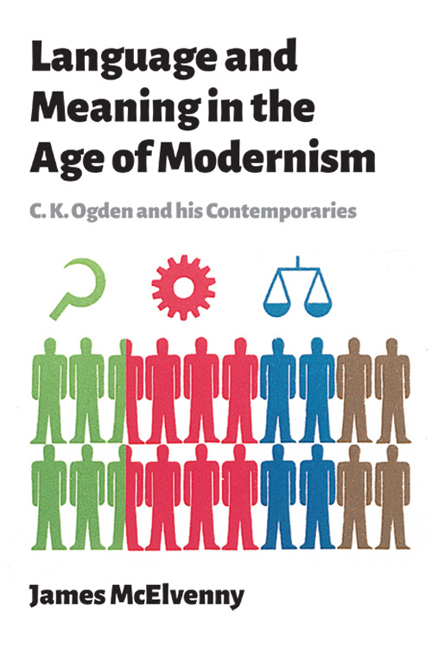2 - The Meaning of Meaning
Published online by Cambridge University Press: 01 May 2021
Summary
By the turn of the nineteenth century to the twentieth, the natural sciences – which have come in the English language to enjoy almost exclusive rights over the designation ‘science’ – were rapidly discovering and recording the details of the natural world. Wanted was the same power over the world of the peculiarly human, populated by thoughts and ideas. But these are perceptible only through signs, such as words and sentences, which are frequently unfaithful and deceiving representatives. It is this task of subjugating signs to science and bringing order to meaning that Ogden and his main collaborator in his early career, Ivor Armstrong Richards (1893–1979), took up in their book The Meaning of Meaning (Ogden and Richards 1989 [1923]), an assault in equal measure on contemporary theorising about language and on the way language itself is used. Their approach they dubbed the ‘science of Symbolism’, a label designed to declare the doctrine's scientific credentials. It was intended to provide both a suitable theory for the analysis of language and practical methods for overcoming ‘word-magic’, their term for the superstitious belief in the power of words.
A disaster exacerbated by word-magic looms large in The Meaning of Meaning: while gas and machine guns created the physical horror of the First World War, propaganda, just one manifestation of word-magic, contributed to its intellectual horror. First World War propaganda sharpened Ogden's sense for word-magic's dangers and, although the roots of the book go much deeper, it was at the end of the war, on Armistice Day, 11 November 1918, that The Meaning of Meaning first started to take concrete shape. The plan for the book, Richards tells us, was worked out on, and as a serendipitous result of, that day. As news of the armistice broke in Cambridge, a mob of angry rioters, incensed by the apparent pacifist stance of Ogden's The Cambridge Magazine, ransacked one of his bookshops, where it was sold (see Gordon 1990b: 12–20 for the history of The Cambridge Magazine). That evening Ogden approached Richards, whom he had seen across the square where the riot took place, to ask him if he could identify any of the perpetrators.
- Type
- Chapter
- Information
- Language and Meaning in the Age of ModernismC.K. Ogden and His Contemporaries, pp. 7 - 53Publisher: Edinburgh University PressPrint publication year: 2018



